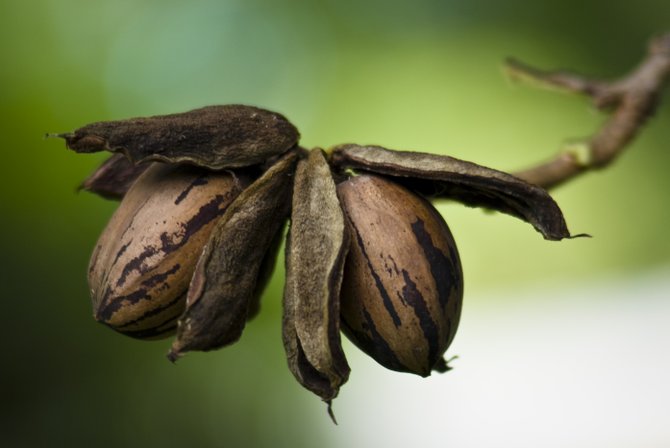Using organic methods can help ensure your pecan trees continue to bear nuts. Photo by Courtesy Flickr/Cory Leopold
Frequently, people ask me why their pecan trees no longer bear. A major reason (among other possibilities) is that the trees don't get enough food.
The first step is to take a soil sample from beneath the tree(s) to the local extension service; and if that doesn't reveal a deficiency, take a leaf sample for plant tissue analysis.
Traditionally, if you have pecan trees, this time of year (February and March) is the time to fertilize them for fall harvest. Most of the guides for fertilizing pecan trees follow conventional methods with synthetic chemicals. The USDA has a paper on it: jfp.ms/USDApecans.
If you plan to go organic, avoid synthetics. As with an organic garden, the secret is in the soil: Assure that the trees are well fertilized and able to fend off pests and bear fruit. One way to do that is through regular spraying of compost tea (liquid compost) to the drip line every six weeks during the growing season. Stay at least 12 inches away from the trunk.
Naturally, here in the South, pests are in great abundance. As with other organically grown crops, you can use beneficial insects to fight the ones you don't want, such as Trichogramma wasps to control the pecan casebearer; you can purchase them at organic garden centers, feed stores and ordered by mail--check Amazon. To kill unwanted pests, look into natural treatments, such as the widely sold organic bacterial insecticide known as Spinosad, derived naturally from a soil-dwelling bacterium.
A lot of trouble for nothing? Hardly.
In fact, Agricultural Research Service scientists in Texas found that pecan trees transitioned to organic outperformed conventional varieties.
For more information, visit jfp.ms/organicpecantrees.
You might also peruse the Arbico organics catalog (arbico-organics.com), for a variety of OMRI-approved pest-control solutions for nut and fruit bearing trees.
Seven Reasons Why Pecan Trees Don't Bear
From the Alabama Extension Service: jfp.ms/7reasons.



Comments
Use the comment form below to begin a discussion about this content.
comments powered by Disqus